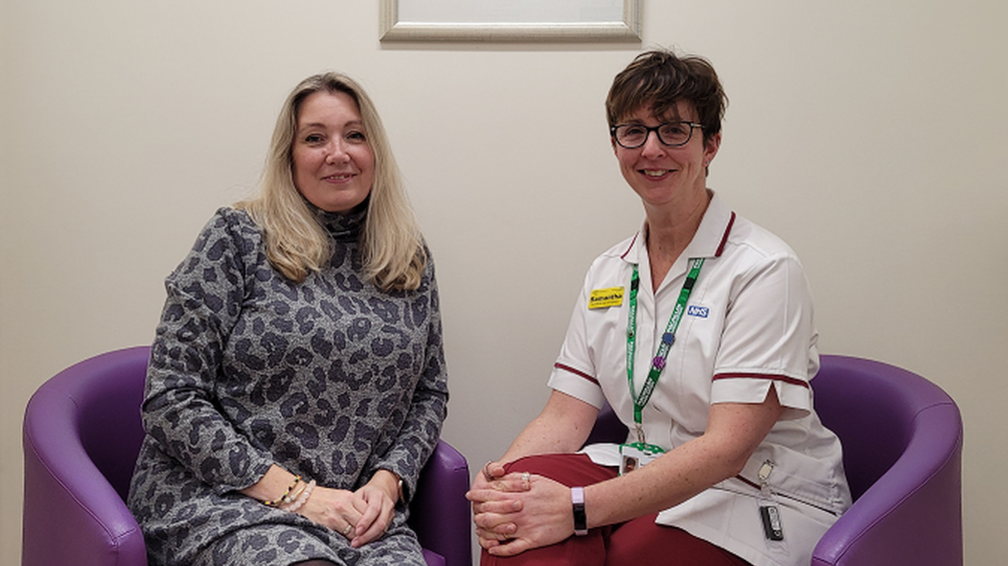Wiltshire woman wants cancer drug made widely available
- Published
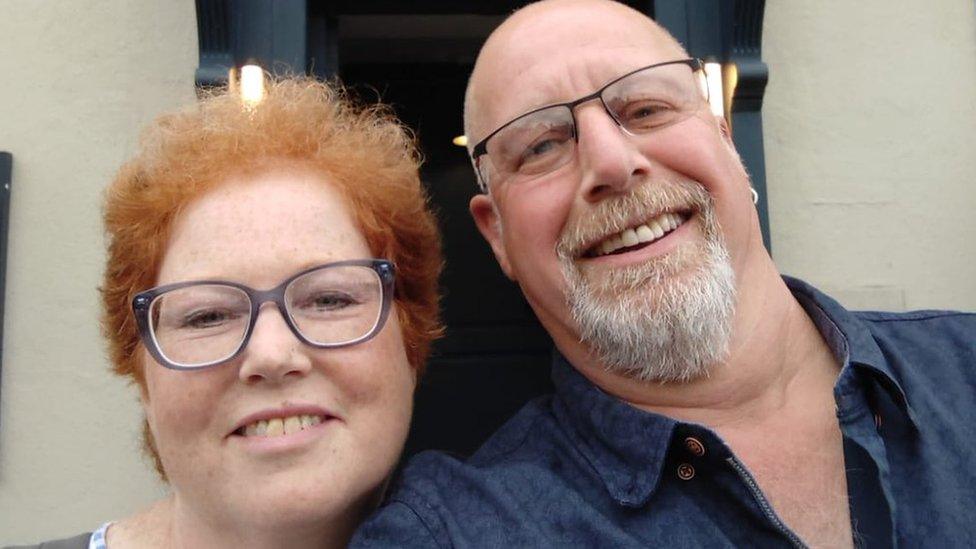
Mrs Allen said she feels "absolutely normal" while on the medication, which she has via infusion every three weeks
A woman with incurable bowel cancer is campaigning for a drug to be approved for use on the NHS.
Nicola Allen, 53, is being treated for stage four bowel cancer at the Great Western Hospital in Swindon, Wiltshire.
She is currently using a crowdfunding appeal to pay for Avastin privately, which costs her £900 every three weeks.
"I don't think Nicola would be around now if it wasn't for this drug," her husband Dave said.
Avastin is not licensed for use for bowel cancer treatment on the NHS and there are no plans to review this.
Mrs Allen, from Great Bedwyn near Marlborough, told BBC Radio Wiltshire the drug was giving her extra months of life with minimal side effects.
"It's been the one thing which has halted the progression of my cancer. So I've now been stable for a year," she said.
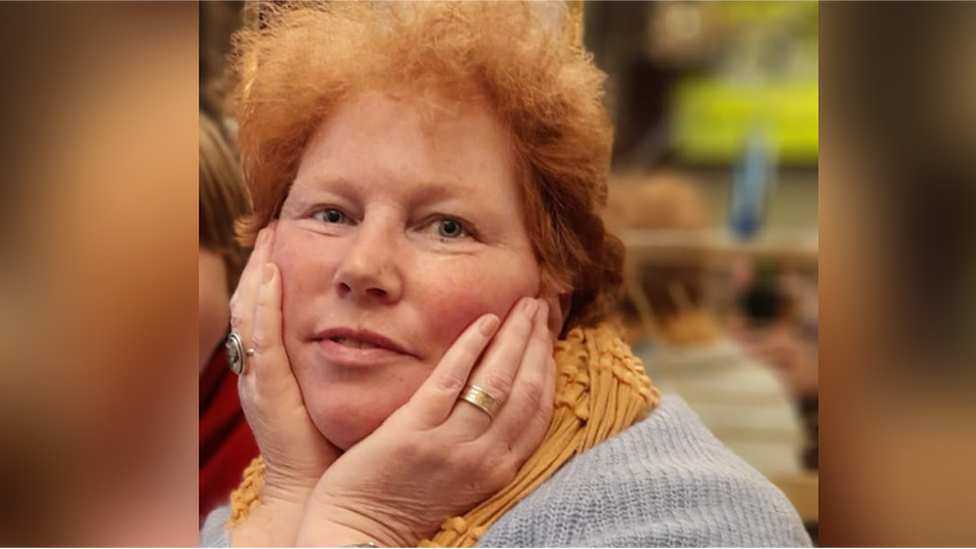
Mrs Allen has enough money to fund a further three or four treatments thanks to the support of friends and family
The drug was also used by Dame Deborah James, who died from bowel cancer in 2022.
The cancer campaigner was treated with Bevacizumab - also known as Avastin - a targeted treatment that stops the cancer from growing blood vessels so it cannot grow.
Saving up memories
Mrs Allen, who has two children, said she wanted to be around for as much of their lives as possible.
Her husband said: "There's been a vast improvement in Nicola's health.
"I don't think Nicola would be around now if it wasn't for this drug.
"Every extra week our children have with her means they can save up good memories for the future."
Oncologist Dr Sarah Lowndes said 13 years on from its initial rejection by The National Institute for Health and Care Excellence (NICE), she should now be able to prescribe Avastin to patients for free on the NHS.
She said: "A number of things have changed in the last 13 years. There are now multiple studies showing that Avastin improves survival in stage four colorectal cancer."
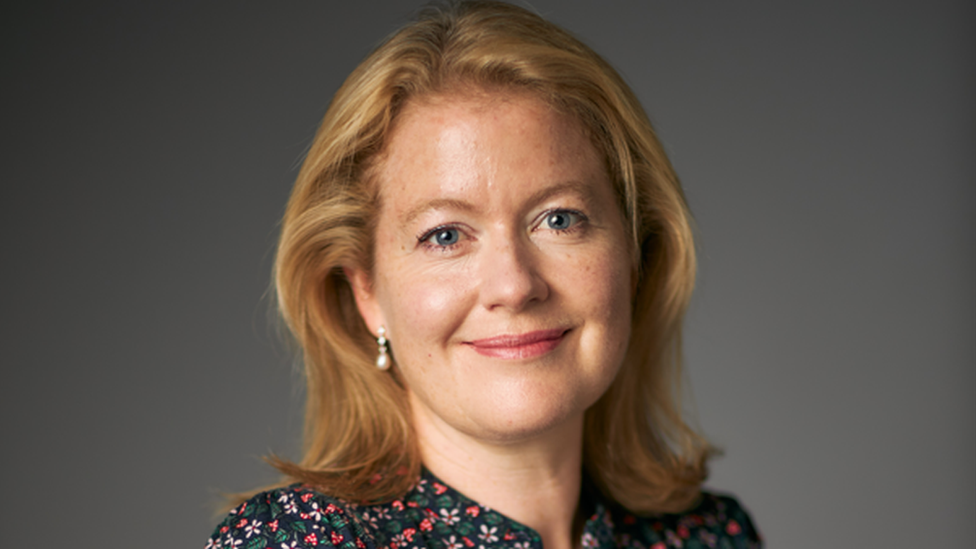
"I don't understand why Avastin is not available on the NHS for stage four bowel cancer patients," said Dr Lowndes
A NICE spokesperson said the use of Bevacizumab and Cetuximab for the treatment of metastatic colorectal cancer was reviewed in 2015.
"No substantial new evidence was identified that would lead to a change in the existing recommendations and it is currently on the 'static list'."
The spokesperson said if NICE was notified of a significant change to the evidence base "this could trigger a formal review proposal".
A spokesperson for Great Western Hospitals NHS Foundation Trust explained that in circumstances like Mrs Allen's, patients only pay for the cost of the drug, and the NHS pays for the staff and resources to administer it.

Bowel cancer symptoms
The NHS states the three main symptoms of bowel cancer are:
Persistent blood in your poo - that happens for no obvious reason or is associated with a change in bowel habit
A persistent change in your bowel habit - such as having to poo more often and your poo may also become more runny
Persistent lower abdominal (stomach) pain, bloating or discomfort - that is always caused by eating and may be associated with loss of appetite or significant unintentional weight loss
These symptoms should be taken more seriously as you get older and particularly if they persist despite simple treatments.
See a GP If you have any of the symptoms of bowel cancer for three weeks or more.

Dr Paul Cornes, an oncologist from Bristol and a member of the European Working Party on the Access to Innovation in Cancer Treatment, said Avastin does not represent good value for the NHS.
"It doesn't ultimately cure people with this disease and its impact is only moderate," he said.
"If you put all the seven trials together it suggests that people might live about two-and-a-half months longer compared to the sort of conventional care that the NHS agrees to fund.
"You might find a patient who you believe has a much higher chance of benefitting from the drug.
"NICE of course makes its decision based on the average patient."
However, he added: "Now the drug is no longer protected by a patent the price has come down. NICE will look very carefully at value.
Dr Cornes said he was "optimistic that Bevacizumab (Avastin) will come into regular use because of the price falls".

Follow BBC West on Facebook, external, Twitter, external and Instagram, external. Send your story ideas to: bristol@bbc.co.uk , external
Related topics
- Published30 September 2022
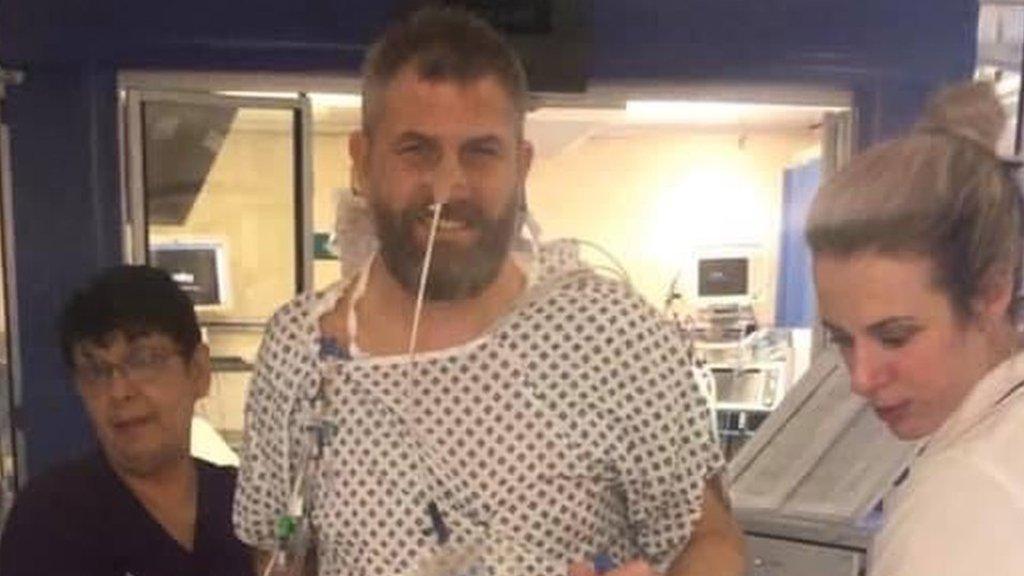
- Published24 August 2010
- Published4 February 2023
